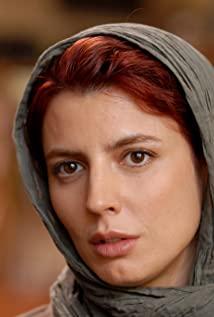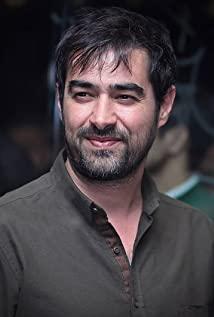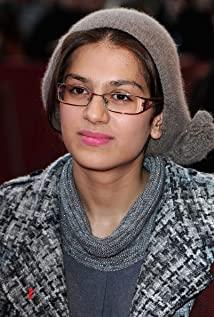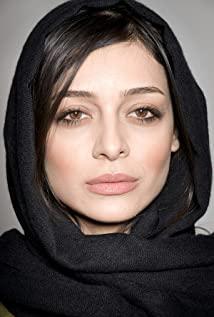Iran, whenever we mention this name, is always inseparable from those political conflicts and slightly extreme religious beliefs. But when this film is shown in front of the audience, we realize that there is no bitterness and hatred of the little people in the big background, and there is no war or displacement. The story is about how ordinary people live in a specific cultural context, and it is more like a documentary, allowing us to see that Iran, which is not very different from us.
The literal translation of the film can be translated as "separation", and the Chinese title is translated as: a separation. In fact, it is very vivid, because the story is about an Iranian couple who finally chose to divorce because of their different life concepts and burdens. It is difficult for a teenage daughter to decide who she should go with and give up the other. At the same time, because of his wife's departure, Nader, the male owner, was out of work and began to look for a nanny to clean the house and take care of his father, who is suffering from Alzheimer's disease. But unfortunately, due to some accidents, the newly arrived nanny Razieh had a miscarriage. Since then, the conflict between the two families has been greatly sublimated, and even went to court. They eventually settled out of court, but sadly, instead of getting better, it hurt both families further.
This film discusses the basic social conditions in Iran's specific social background, mixed with many elements of life, and has very distinctive regional cultural characteristics.
The first thing that is shown in front of us is the family, a divorced couple, in a simple court (here is obviously dissatisfied with the social status and public service facilities) to describe the reasons and determination for divorce, the director used a rare super long shot—— Five full minutes! The male and female protagonists are separated by an arm's distance, sitting on the chair, the camera is facing them directly, the judge, as a voice-over, keeps asking them the reasons for divorce and their views on each other. Both sides seem helpless, but their will is very firm , without the slightest concession, because the other party has crossed his inner bottom line. Until finally they signed the agreement. Leaving a suspense: who should the teenage daughter live with.
Back home, the mother, Simin, obviously wanted her daughter Termeh to go with her, but the daughter had her own ideas. At the end of the story, Simin said that in fact, the daughter was reluctant to choose because she wanted her parents to come together again. Speaking of this, I think of many friends around me. Even though many of them are reluctant to admit it, they cannot deny how much damage is done to the hearts and hearts of children when parents leave each other. Termeh is very sensible, so she just faced it indifferently, secretly shedding tears. The family at this time is already deformed and lacks the meaning of happiness. No matter which party, their hearts are full of disappointment. Simin drives with tears in the corners of his eyes, and Nader sits helplessly, leaning against the wall, bowing his head thoughtfully.
After his wife left, Nader will undoubtedly have to take on more family responsibilities, not only sending his daughter to school, but especially taking care of his Alzheimer's father. So he hired a nanny to help him clean the house and take care of his father, but the nanny Razieh also has his own troubles.
The responsibility here is given two layers of meaning. The first is Nader's responsibility. Facing the trivialities of life, as a man, he was suddenly a little confused and at a loss, and didn't know how to deal with it. As for her daughter, although she has grown up and doesn't need to explain a lot about divorce, she obviously depends on him for her academic care and life care. As for his father, when he was helping him take a bath, he cried... because he was really tired, too tired. The second is the responsibility of the nanny Razieh. Her income is actually very low, but she is very serious, but for a woman who is four months pregnant and takes a four or five-year-old daughter to work by long distances, for her It's really hard work. But the husband owes a lot of debt and has been unemployed for a long time, so he can only bear the burden of the family by himself.
In the author's opinion, the latter's life is undoubtedly more difficult because she lacks choices. And the responsibilities she faced were even heavier. From Razieh's eyes, we see helplessness, tiredness, and even some suppressed blankness at that moment, but more often, it still reveals that desire and dedication to life. How many times, looking at my daughter, as a mother, she felt a little gratification and a little happiness. A beautiful daughter is what sustains her spirit.
Just like the story told in the movie, no matter what social status or social role you play, responsibility is everywhere in life, it will make us breathless, but at the same time we cannot deny that this is a powerful life force. No matter who is in the film, they will take responsibility bravely, whether they want to or not, but it is clear that they are very hardworking and attentive.
The film then presents another more important theme, which is honesty. The director used a very clever expression to hide some stories, and the hiding is so logical and natural. When those hidden things are revealed by Razieh at the end of the story, all problems are solved.
Unfortunately, due to a misunderstanding, the fact that Razieh had a miscarriage was brought to court by her husband, when Nader learned that if convicted, he faced one to three years in prison for murder. Therefore, he concealed the fact that he knew that Razieh was married in advance, but obviously, all this did not deceive his daughter's eyes. Termeh's private questioning repeatedly stimulated Nader's heart, which made him extremely painful. However, the man's stubbornness and the so-called dignity became his only support at this time, and at the same time he was lucky, but he gradually got used to forgetting the word honesty. Razieh, who suffered a miscarriage due to an accident, was extremely grief-stricken, but it was not until the end that she revealed the real reason for the miscarriage. In fact, she did this to keep her job, to keep a secret from her husband, and more importantly, to leave a piece of dignity.
Thinking of the "True Lies" I watched many years ago, I like the title very much, because there are many meanings behind the simple words. A lot of times, it can't be denied, honestly, that it's really hard. Our reasons for lying are complex, even well-intentioned, but we cannot deny that a lie is a lie after all, and it can cause unintended harm. So we gradually discovered that it is better to skip this passage than to lie, which seems to make us feel more free from guilt. Razieh realizes this too, but unfortunately, all this has brought with her inner pain and her husband's anger, the future is even more unpredictable for her.
Finally, and the part that interests me the most, is faith. There is no pilgrimage scene unique to Islam throughout the film, which is quite special for such a film with a strong regional culture. But at the same time, we found that without pilgrimage, religious belief is ubiquitous in the film, and it is extremely natural and decisive.
The first of course is the women's hijab, Simin is a beautiful woman with red hair, an English teacher, from the changing colors of her hijab and the way she wears it loosely, we can tell that she keeps a lot of her beliefs while maintaining her beliefs. A kind of self-confidence and independence in the heart of intellectual women. On the other hand, Razieh is black from the beginning to the end, and has two layers. The outer layer of long black cloth is subconsciously played with by Razieh many times, showing her inner fragility, lack of confidence and extreme anxiety and anxiety when lying. . In her eyes, the headscarf is an important part of faith, and it is the last barrier to hide one's heart. In the scene where Simin drives to pick up Razieh and her daughter at the beginning of the film, I even read Razieh's eyes and dialogue with her disdain for Simin. Obviously, the attribution of all this is due to different beliefs. understand.
The second scene, the one that interests me the most, is when Nader's Alzheimer's father wets the bed all over his pants, but he doesn't even know how to take care of them. Razieh actually made a phone call, and the other end of the phone felt like a religious organization, similar to a priest. She elaborated on the situation she faced, asking if it was a sin if she helped the old man bathe. She breathed a sigh of relief when she got a negative answer, then turned to her daughter, who said
, "I won't tell Daddy," and she was relieved.
This never-before-seen approach touched me deeply, because religion is everywhere for them, and when you truly have your own beliefs and are willing to stick to them, the power is awesome. Here, not to talk about whether religion is morally correct, whether Razieh is just a person who has no opinion or even blind obedience, even if the director may want to express such a point of view. However, what this set of shots shows us is a society with strong beliefs. People not only talk about God, but also have high moral standards in their words and deeds. shock. Because this is its attachment to belief, which penetrates into the pores and nerves.
The third segment is at the end, when Nader finally agreed to give the Razieh family money to settle out of court, he insisted that in front of everyone, Razieh swears to the "Koran" that it is not his own That push caused the miscarriage of the child. Razieh couldn't take it anymore, she stood there, extremely helpless, and even got into a fight with her husband...
The story was brought to another climax here, family, responsibility, honesty, faith, were pinched at this moment Being together, it weighed heavily on Razieh's heart. She was crushed. Because of the strong conflict between reality and belief, she completely lost her direction. She cried hysterically at Simin with tears in her eyes... At this moment, it was doomed. of an impending family tragedy.
I admire people who have faith, whether that faith is religion or something else spiritual. Because people who can uphold their beliefs are spiritually dependent, have principles, and have a moral bottom line. Speaking of which, all of them sigh that the era and environment we live in today have made many people lose that belief. Many people say that people's beliefs are money and power. Is it possible to end well? How many famous ethnic groups and cultures have been continuously passed on and carried forward because of their belief in money and rights...
As I write and write, I find that there are too many things expressed and contained in this film, and it is impossible to show and analyze them one by one with just one article, but what is certain is that it shows the world a very real reality. Iran, a full-fledged Iranian people with a complete personality. The solid, yet incomparably simple and in-place acting skills of the actors make this film full of infinite charm. Of course, the significance of watching such films is not only to understand the world, but also to make these vivid and seemingly real stories touch our nerves, subtly influence and push our lives forward.
View more about A Separation reviews











